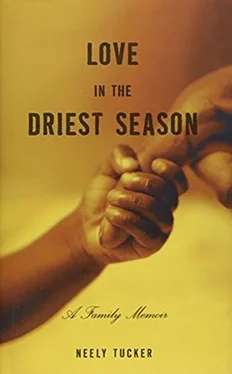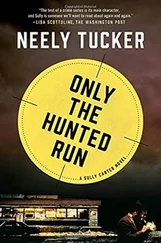On the rare occasions I was home in Harare, my wife, Vita, and I began to volunteer at Chinyaradzo Children’s Home, an orphanage set in an industrial slum on the south end of town. We could have no children of our own, a peculiar form of emptiness, and were touched by the fate of children who had no parents. In any event, we did what we could, and mostly that wasn’t much. Thirty-five infants died in twenty-four months. Tatenda. Godfrey. Ferai. Robert. Caroline. Clara. A little girl with the sweetest name of Rejoice. They withered and died like flowers in the field. It is difficult to express the sorrow of such a thing. I witnessed all manner of death and human cruelty in my years as a foreign correspondent. I never learned to describe what it is like to see dead children in your dreams.
So in the final years of the century, with Zimbabwe falling into political and economic collapse, we began to devote a good deal of our time and resources to the orphanage as a means of becoming personally engaged in the despair sweeping the nation. Vita eventually got a $7,000 grant from the U.S. embassy, a fortune in local terms, in an effort to slow the mortality rate. We refurbished the kitchen and changing room, bought boxes of sanitary supplies, and brought in the nation’s best pediatric cardiologist to train the staff, yet it was like plugging a dike with a finger. Zimbabwe was spending the equivalent of twelve cents per day to feed, clothe, house, treat, and educate each orphan, a hopelessly small sum against the ravages of malnutrition, diarrhea, dehydration, and AIDS.
In that miserable season, lost among the many in the orphanage, lay the girl-child Constance and Herbert discovered. She had fallen ill almost the day she was admitted. Her tiny stomach was bloated and distended, her arms and legs withered. She developed pneumonia. She could scarcely hold her milk. She had never smiled. Her weight dropped below four pounds, three ounces.
And still she wasted away.
There are moments in life, no more than two or three, when everything changes and you find yourself swept along in a series of events that are beyond your measure. And so it was that I picked up the girl-child one day in an orphanage at the epicenter of the world’s AIDS crisis, in a country where foreign journalists, including myself, would shortly be declared to be enemies of the state. She regarded me with worried eyes and a whimper, and then she closed her left hand around my little finger.
Within ninety-six hours, she would come to mean everything to my wife and me, since she became, for as long as she should live, our only child.
THE BUREAUCRAT was not a happy man, and it didn’t take long to understand that I was the source of his irritation. Richard Tambadini was a senior officer in Zimbabwe’s Department of Immigration Control. In May 1997, in a drab office in a dreary government building known as Liquenda House, he looked over my papers. He was slow, careful of speech, and so disdainful he seldom looked up.
“You have sent your belongings here ahead of yourself,” he said, sounding as if he were reading from an indictment. “You presume that we will give you a work permit. You think little black Zimbabwe needs big white American men like you.”
He paused and looked out the window at downtown Harare. A car alarm was going off on the street below, the repeated bleating of its horn drifting above the sound of midmorning traffic.
I shifted in my hard-back chair. This was becoming embarrassing. Vita and I had packed up our belongings from our previous posting in Warsaw, Poland, a few weeks earlier. The crate had to be trucked to Gdansk, wait for a ship, then be carried across the Baltic Sea down to Amsterdam, transferred to another cargo ship, then sailed down the coast of Europe, the entire West African coast, around the southern tip of Cape Town, and on to the South African port of Durban. Then it had to be transferred to a rail car and hauled to Zimbabwe. The shipping clerk had said eight weeks at best; perhaps three or four months. My predecessor in Harare had assured me that the Zimbabwean government would issue my work permit as a foreign correspondent long before then.
The crate made it in three weeks.
Now I was in Harare, trying to explain to Tambadini why this unexpected delivery did not constitute an act of ugly American hubris.
“Mr. Tambadini,” I said in an attempt to lighten the situation, “I’m five foot seven inches, and I don’t think anybody has ever said I tried to act like a big-”
“We have just met, Mr. Tucker, and yet I know your kind very well,” he cut me off, looking at his fingernails. “You come from America, a country that disparages black people. You are a rich man. You come here, you see poor little Zimbabwe, where even the people who administer the government are black, and you have assumed that we need you. You think we are so grateful to have you among us that you think we will exempt you from our laws. It is the way of the white man in Africa.” His tone had changed to an icy disdain.
“So we have a system for people like you. We impound your goods in customs until you are approved, at the rate of a hundred U.S. dollars per day. If we decide to approve your application-and this could take months-then you will pay us and you may receive your goods. But you will pay us, Mr. Tucker, for your arrogance.”
He was making a speech, and I got the idea it wasn’t the first time, but I was still disconcerted. His insistence on characterizing a routine transit mix-up as a deliberate racial slight was unsettling, and the idea that I was a rich man might have been amusing in another context. But telling my editors they were about to be fined several thousand dollars was not a prospect I relished. So I took a deep breath and ate humble pie.
“Sir, if my company or I have made assumptions, I am terribly sorry, but they are not the assumptions you say. My paper, the Detroit Free Press, has been here seventeen years, the longest of any American media company. We have been in Zimbabwe since independence, since black Zimbabweans seized control of their own country. When every other American newspaper left to go to South Africa after apartheid, my newspaper stayed here, in a country that is ninety-nine percent black. The city I report for is the most predominantly black metropolis in America. It is seventy-five percent black. The managing editor of my newspaper, the man who sent me here, is a black American. The black lady waiting in the hallway, the one with the dreadlocks and the blue dress, is my wife. If my paper, my predecessor, or I thought it was necessary for me to come here to apply for a work permit months ago, I would have done so. It is unfortunate this shipment has arrived so quickly. But it is not for the reasons you suggest.”
Tambadini looked out the window. “Perhaps,” he said, and waved a hand, dismissing me. Two days later, the work permit was approved. But I would remember that little encounter in the years ahead, a warning light going off before I even knew to look for one.
THE RACIAL CONFRONTATION of that morning was more a tired refrain than a new angry incantation for me, for race had been the defining issue of my life. I did not grow up learning of Tambadini’s home country, a small nation in southeastern Africa that was then known as Rhodesia, but my homeland in the Deep South was mired in an oddly parallel racial struggle. In the 1960s, when blacks in Zimbabwe were fighting for independence from a white colonial regime, black people in the American South were fighting for their rights. The reaction of white Rhodesians and white southerners, particularly in my home state of Mississippi, was just about the same. For a while, for the few who noticed, the two struggles seemed to play in syncopation.
Читать дальше











